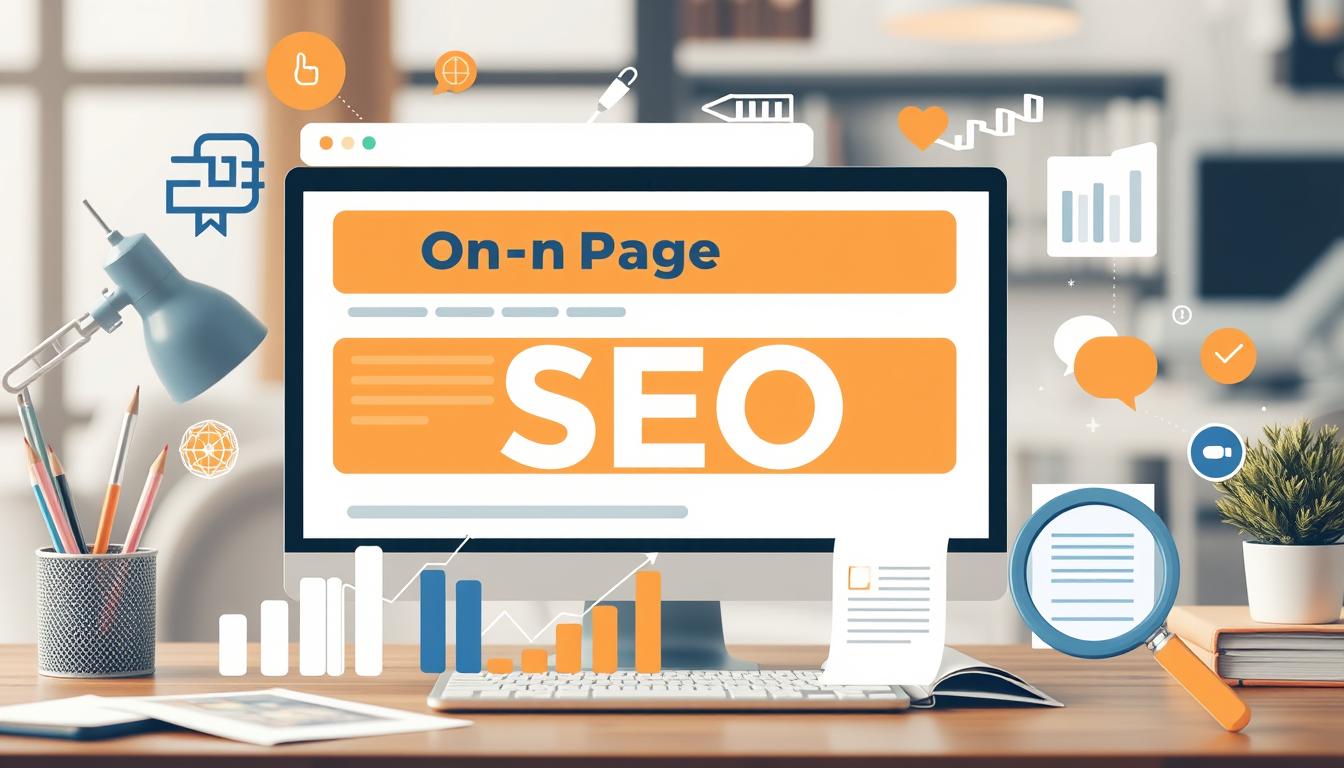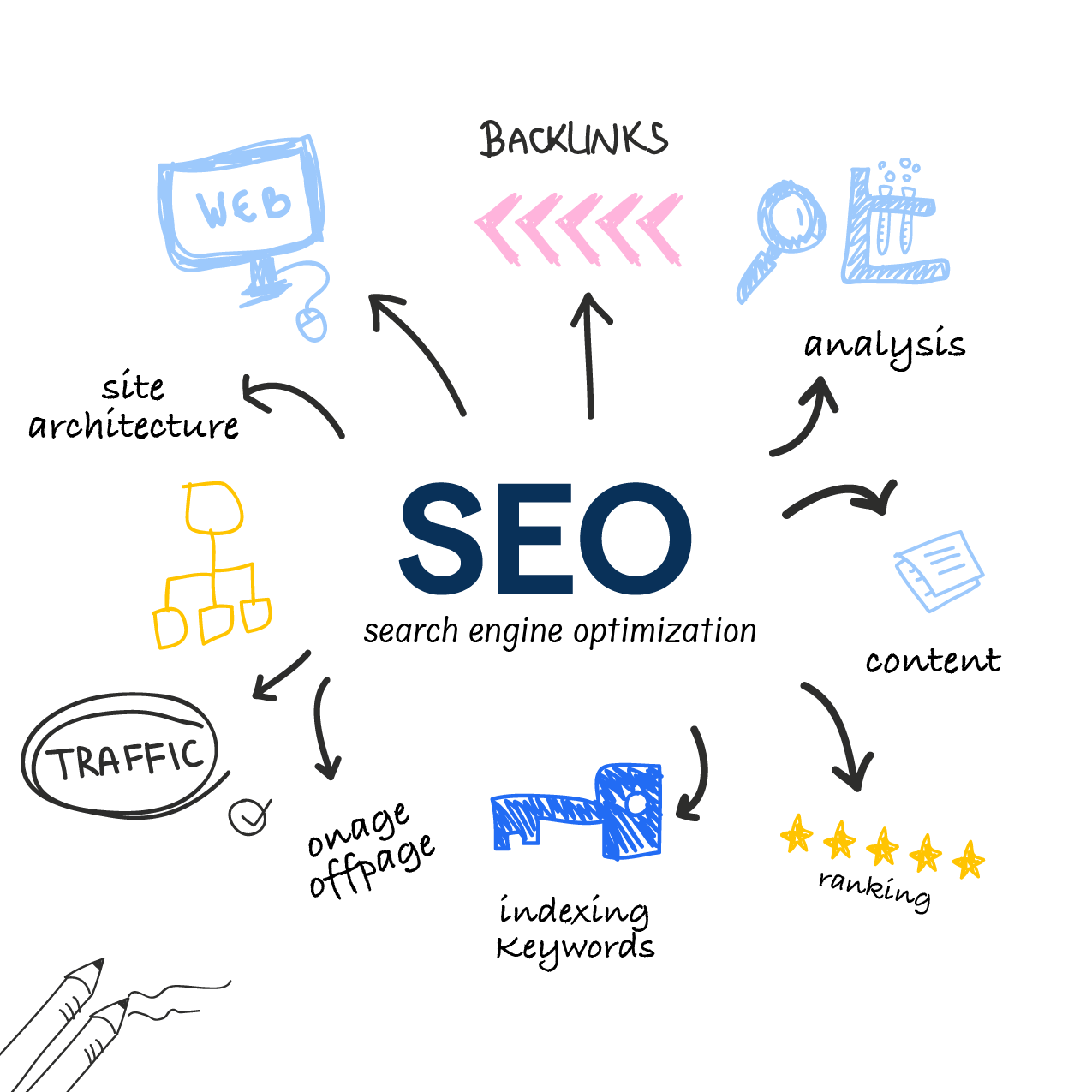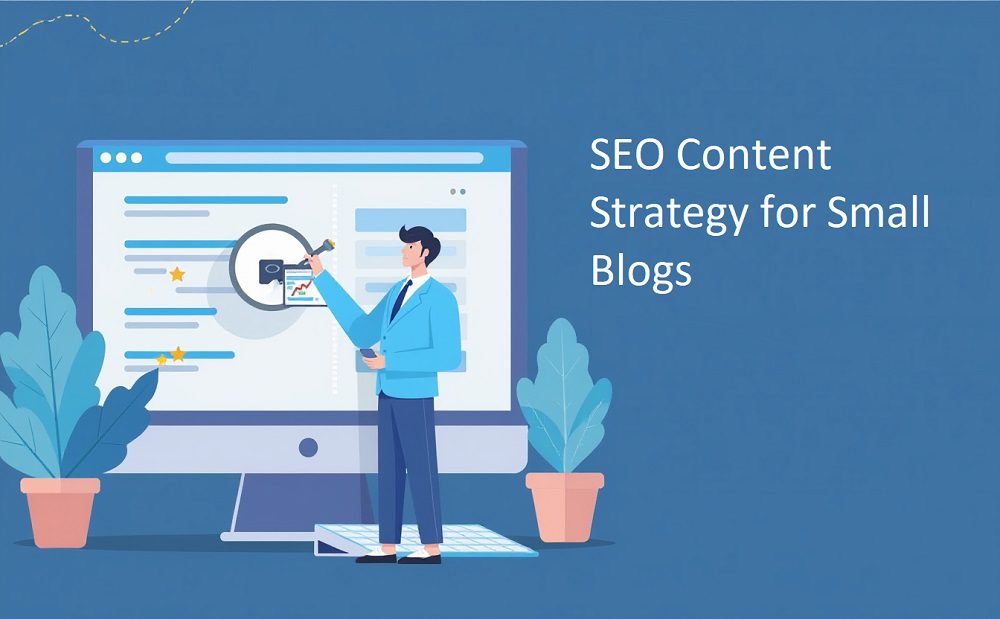10 Reasons Why On-Page SEO is Crucial for Your Website Success

As a small business owner, you work hard to create a website that shows your brand’s true spirit. But in today’s world, just having a great website isn’t enough. You need to make sure it’s also good for search engines. That’s where on-page SEO comes in.
On-page SEO helps your web pages rank higher and get more relevant visitors. It’s key to your digital marketing success. It affects how visible, credible, and successful you are online.
Key Takeaways
- On-page SEO is essential for improving your website’s visibility and driving targeted organic traffic.
- Optimizing your content, meta tags, and technical elements can significantly boost your search engine rankings.
- Enhancing the user experience through on-page optimization leads to higher engagement and conversions.
- On-page SEO is a cost-effective marketing strategy with a strong return on investment.
- Effective on-page optimization helps you outrank your competitors and establish your brand as an industry authority.
What is On-Page SEO?
On-page SEO is about making your website better for search engines. It involves keyword research, content optimization, and improving your site’s structure. This helps your site rank higher in search results and gets more visitors.
Definition and Overview of On-Page SEO
On-page SEO makes your web pages easy to find and use. It ensures your site is quick, easy to navigate, and trustworthy. This means using headings and relevant keywords in your content. It also means keeping your site’s technical side up to date.
By improving your on-page SEO, you can beat your competitors. Your site will become a go-to resource in your field.
- On-page SEO involves optimizing the content and HTML elements on a web page to improve search engine visibility and rankings.
- Key on-page SEO elements include keyword research, content creation, meta tag optimization, internal linking, and mobile responsiveness.
- Effective on-page SEO helps search engines understand the relevance and quality of your website, leading to improved rankings and increased organic traffic.
Improved Search Engine Rankings
Using good on-page SEO strategies is key to making your website more visible. By making your content and website better, you can get higher rankings. This means more organic search results for your business.
Google looks at websites based on E-A-T (experience, expertise, authority, trustworthiness). It values first-hand experience, knowledge, and trust. On-page SEO shows a page’s relevance and quality. This affects how well your website works, its speed, if it’s mobile-friendly, and its URL structure.
SEO content should be easy to read. It should avoid keyword stuffing and use subheadings and bulleted lists. Adding fresh information and visuals like images and videos makes it better for users and search engines. Title tags and meta descriptions help with relevance and getting more clicks. Fast-loading sites also rank better in SEO.
By using smart keyword optimization and creating great content, your website becomes a trusted source. This helps you beat your competitors and attract more visitors to your online space.
Increased Website Traffic
Using good on-page SEO can really help your website. By making your content better, your site’s structure, and your metadata, you can get more organic website traffic. This also means more people will see your site and more chances to get new customers.
Studies show that companies with blogs get 97% more links to their sites. Businesses with blogs see a 55% jump in visitors compared to those without. Blogging also makes marketers 13 times more likely to see a positive return on investment. Good blog headlines can even increase traffic by 500%.
The top page of Google gets 71% of all search traffic clicks. This shows how important it is to rank high in search results. By improving your website’s on-page elements like titles, headings, and meta tags, you can get to the top of search results. This brings more organic website traffic to your site.
Using long-tail keywords, internal linking, and schema markup can also help. Regularly updating your content and getting backlinks from trusted sites can increase your site’s traffic and online presence.
By focusing on on-page SEO, you can make your website work its best. This attracts more engaged users who might become valuable customers. Investing in on-page SEO is a smart and cost-effective way to grow your business.
Why On-Page SEO

The Importance of Targeting Relevant Keywords
On-page SEO is key to your website’s success. It focuses on using the right keywords. This makes your site more visible in search results.
Good keyword research is essential. It helps you know what people are searching for. This way, you can make content that meets their needs. It also helps more people find and interact with your site.
Knowing the types of keywords is also important. Early-stage keywords attract new customers. Later-stage keywords help them make a purchase. Using these in your content can boost your site’s performance and attract more visitors.
On-page SEO and keyword research are vital. They help your site match what your audience is looking for. This improves your on-page seo importance, keyword research, and content strategy. It also boosts your visibility and search intent throughout the buyer journey.
Enhanced User Experience
Improving your website for on-page SEO does more than boost search rankings. It also makes your site better for visitors. Focus on performance, speed, navigation, and content quality. This way, you make a site that’s easy to use and fun to visit.
How On-Page SEO Improves User Engagement and Satisfaction
Google’s Core Web Vitals are key for a good user experience. They include Largest Contentful Paint, Cumulative Layout Shift, and Interaction to Next Paint. By meeting Google’s standards, your site loads fast, stays stable, and feels smooth to users.
Good on-page SEO also means clear navigation and easy-to-find content. When users can easily find what they need, they’re more likely to stay and explore. This can lead to more conversions.
Studies show that better user experience can cut cart abandonment by half. This could raise conversion rates by 35%. On-page SEO is a smart way to improve your site and boost your business.
| SEO Tactic | Impact on User Experience |
|---|---|
| Page Speed Optimization | Faster loading times, reduced bounce rates, and improved engagement |
| Intuitive Navigation | Easier findability of content, lower frustration, and higher satisfaction |
| Responsive Design | Consistent, mobile-friendly experience across devices, leading to better engagement |
| Relevant, High-Quality Content | Increased dwell time, lower bounce rates, and better overall user satisfaction |
By focusing on both SEO and user experience, you make a site that ranks well and is great for visitors. This approach boosts engagement, conversion rates, and your competitive edge. It’s a win-win for your business.
Cost-Effective Marketing Strategy

Search engine optimization (SEO) is a top choice for digital marketing because it’s cost-effective. It focuses on organic search visibility. This can bring long-term results without a big ongoing cost.
Many marketers, 89%, see SEO as a key strategy for businesses. It’s a scalable and efficient way to grow your brand and reach customers. While it needs an initial investment, the upkeep costs are low. This makes it great for businesses of all sizes.
Most online sessions start with a search engine, 93%. This shows how crucial search engines are in customer behavior. Also, 71% of B2B customer research starts with a search. By optimizing your site and content for keywords, you can attract valuable traffic and leads.
SEO leads have a high close rate, nearly 15%, compared to traditional marketing leads. This highlights the quality of SEO leads. With organic search driving over half of all web traffic, a solid SEO strategy is key for cost-effective marketing.
| Metric | Value |
|---|---|
| Marketers Considering SEO a Successful Strategy | 89% |
| Online Sessions Starting with a Search Engine | 93% |
| B2B Customer Research Beginning with a Search | 71% |
| Close Rate of SEO Leads | 15% |
| Web Traffic from Organic Search | Over 50% |
In summary, SEO is a cost-effective marketing strategy. It drives long-term results and scalable growth. It’s a wise investment in today’s digital world.
Competitive Advantage
In today’s digital world, beating your rivals with on-page optimization can change the game. By making your website better, you can stand out in search engine results. This puts you ahead of those who don’t focus on search engine visibility.
Creating unique, high-quality content is key to SEO success. Keep your content fresh by regularly updating keyword research. Also, active social media with regular posts helps a lot. Businesses with great content and a wide audience see big boosts in SEO.
Copying top SEO strategies is expensive and can break rules. But, putting in the effort to be creative and execute well pays off. For instance, one company grew to 100,000 monthly visitors in just 10 months with smart SEO.
Learning on-page SEO best practices can make your website more visible. This leads to more clicks and sales. It’s a long-term win that saves money on ads and builds trust through search engine rankings.
Improved Brand Credibility

Having a strong brand online is key for lasting success. On-page SEO is vital for boosting your brand credibility and brand authority. By making high-quality content, you show you know your stuff and are trustworthy, as Google suggests.
Getting backlinks from trusted sites is also important. These links tell search engines and people that your content is worth reading. Without them, your site might not get seen as much, with 66.31% of pages having no links and 26.29% with links from just three sites.
Good reviews also help make your brand more visible and credible. Since 78% of people trust online reviews, responding to them shows you care about your customers. This builds trust with your audience.
Using Schema markup can also improve your brand credibility. It makes your content stand out in search results, showing your expertise in areas like recipes and FAQs. This helps users see your trustworthiness right away.
In summary, a well-rounded on-page SEO plan is essential. It includes creating top-notch content, getting quality backlinks, managing reviews, and using Schema markup. This approach can greatly boost your brand credibility and make your business a trusted leader in your field.
| Metric | Impact on Brand Credibility |
|---|---|
| Average Impressions for Brand Recall | 5-7 impressions |
| Increase in Revenue through SEO | 23% |
| Pages without Backlinks | 66.31% |
| Pages with 3 or Fewer Backlinks | 26.29% |
| Trust in Online Reviews | 78% |
Mobile-Friendly Optimization
In today’s world, making your website work well on smartphones and tablets is key. Search engines like Google give mobile-friendly sites better rankings. If you don’t focus on mobile, you could lose a lot of visitors and potential customers.
Mobile optimization is more than just a responsive design. It’s about making your site better for users on the go. By optimizing for mobile, you ensure your site works well for everyone, keeping them interested and coming back.
Catering to the Mobile-First World with On-Page SEO
On-page SEO is vital for a mobile-friendly site. It includes making your site fast and easy to use. By focusing on mobile, you meet the needs of users and search engines alike.
- Make sure your site loads fast on mobile, as users expect it to in 3 seconds or less.
- Optimize content and images for mobile, keeping key info easy to see.
- Use responsive design for a smooth experience on all devices.
- Follow mobile-specific SEO tips, like optimizing for local search and using AMP.
- Check and improve your site’s mobile performance with tools like Google’s PageSpeed Insights and Lighthouse.
By focusing on mobile optimization, you can succeed in today’s mobile world. You’ll engage your audience and meet search engine requirements.
Valuable Insights and Analytics

On-page SEO does more than just improve your search rankings. It also gives you data-driven insights for your content strategy and business growth. With SEO analytics, you learn about your audience’s behavior and likes. This helps you make smarter choices for your website and brand.
Google Analytics is full of data on how users interact with your site, where they come from, and how your content performs. By studying this data, you can find out which pages work best, see where you need to get better, and make your content more appealing to your audience. This way, you can make your users happier, get more conversions, and achieve better business results.
| SEO Metric | Insight | Business Impact |
|---|---|---|
| Organic Search Traffic | Understand which keywords and content are driving the most qualified visitors to your site. | Enhance your content strategy to better attract and engage your target audience. |
| Bounce Rate | Identify pages with high bounce rates, indicating potential issues with user experience or content relevance. | Optimize the identified pages to improve user engagement and reduce bounce rates. |
| Conversion Rate | Analyze which pages and content are most effective in driving desired actions, such as lead generation or sales. | Allocate resources to the high-performing content and optimize underperforming pages to boost business growth. |
By using SEO analytics, you can get data-driven insights to guide your content, marketing, and business growth decisions. The goal is to keep improving your on-page SEO. This way, you can stay ahead and give your audience the best experience.
Integration with Other Marketing Channels
Combining your on-page SEO with other digital marketing channels can make your strategy stronger. It helps your brand reach more people online. By linking your SEO with other marketing, you can make your content and messages more powerful.
Leveraging Synergies Across Channels
Integrating your on-page SEO with other marketing channels offers many benefits:
- Amplified Visibility: Showing your brand on more platforms, like social media and email, can make you more visible online.
- Enhanced User Experience: Keeping your brand’s message the same everywhere makes your brand more memorable.
- Diversified Traffic Sources: Mixing SEO with other channels means you’re not just relying on one way to get visitors.
Keep an eye on important metrics like traffic, keywords, and conversions. This helps you see how well your marketing mix is working. You can then make changes based on what the data shows.
Strategies for Successful Integration
To blend your on-page SEO with other marketing, try these strategies:
- Content Synergy: Make sure your SEO content fits with your other marketing messages. This keeps your brand’s voice consistent.
- Keyword Consistency: Use the same keywords in all your marketing, from ads to social media. It strengthens your brand’s message.
- Link Building Across Channels: Add links to your site in emails, social media, and other marketing. It helps your SEO.
- Social Media Integration: Use keywords and strategic content on your social media. It boosts your visibility and website traffic.
- Paid Advertising Alignment: Match your paid ads with your SEO keywords. It makes your marketing more effective.
By combining your on-page SEO with other digital marketing, you can build a strong strategy. This strategy will help your brand shine online and bring real results.
Conclusion
On-page SEO is key for your business’s online success. It boosts your search rankings, brings in more visitors, and makes your site better for users. This strategy gives you a competitive edge and helps build your brand.
As the web changes, focusing on on-page SEO is crucial. It helps your site stay visible and attract the right visitors. This way, you can meet your business goals through smart online marketing.
On-page SEO is an ongoing effort. You need to keep checking, analyzing, and improving it. By using the latest techniques and tools, your site will stay strong and successful online.





